Related Research Articles

William Nelson Joy is an American computer engineer and venture capitalist. He co-founded Sun Microsystems in 1982 along with Scott McNealy, Vinod Khosla, and Andy Bechtolsheim, and served as Chief Scientist and CTO at the company until 2003.
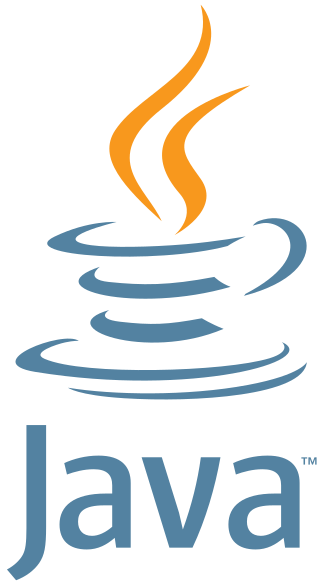
Java is a high-level, class-based, object-oriented programming language that is designed to have as few implementation dependencies as possible. It is a general-purpose programming language intended to let programmers write once, run anywhere (WORA), meaning that compiled Java code can run on all platforms that support Java without the need to recompile. Java applications are typically compiled to bytecode that can run on any Java virtual machine (JVM) regardless of the underlying computer architecture. The syntax of Java is similar to C and C++, but has fewer low-level facilities than either of them. The Java runtime provides dynamic capabilities that are typically not available in traditional compiled languages.

Sun Microsystems, Inc. was an American technology company that sold computers, computer components, software, and information technology services and created the Java programming language, the Solaris operating system, ZFS, the Network File System (NFS), and SPARC microprocessors. Sun contributed significantly to the evolution of several key computing technologies, among them Unix, RISC processors, thin client computing, and virtualized computing. Notable Sun acquisitions include Cray Business Systems Division, Storagetek, and Innotek GmbH, creators of VirtualBox. Sun was founded on February 24, 1982. At its height, the Sun headquarters were in Santa Clara, California, on the former west campus of the Agnews Developmental Center.

James Gosling is a Canadian computer scientist, best known as the founder and lead designer behind the Java programming language.
Jini, also called Apache River, is a network architecture for the construction of distributed systems in the form of modular co-operating services. JavaSpaces is a part of the Jini.

Apache Tomcat is a free and open-source implementation of the Jakarta Servlet, Jakarta Expression Language, and WebSocket technologies. It provides a "pure Java" HTTP web server environment in which Java code can also run. Thus it is a Java web application server, although not a full JEE application server.

Guy Lewis Steele Jr. is an American computer scientist who has played an important role in designing and documenting several computer programming languages and technical standards.
Ecma International is a nonprofit standards organization for information and communication systems. It acquired its current name in 1994, when the European Computer Manufacturers Association (ECMA) changed its name to reflect the organization's global reach and activities. As a consequence, the name is no longer considered an acronym and no longer uses full capitalization.
Robert William Scheifler is an American computer scientist. He was born in Kirkwood, Missouri. He is most notable for leading the development of the X Window System from the project's inception in 1984 until the closure of the MIT X Consortium in 1996. He later became one of the architects of the Jini architecture at Sun Microsystems.
A tuple space is an implementation of the associative memory paradigm for parallel/distributed computing. It provides a repository of tuples that can be accessed concurrently. As an illustrative example, consider that there are a group of processors that produce pieces of data and a group of processors that use the data. Producers post their data as tuples in the space, and the consumers then retrieve data from the space that match a certain pattern. This is also known as the blackboard metaphor. Tuple space may be thought as a form of distributed shared memory.
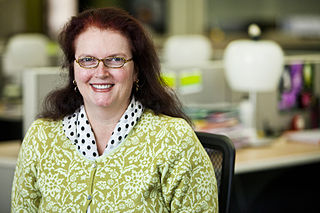
Danese Cooper is an American programmer, computer scientist and advocate of open source software.

Java is a set of computer software and specifications that provides a software platform for developing application software and deploying it in a cross-platform computing environment. Java is used in a wide variety of computing platforms from embedded devices and mobile phones to enterprise servers and supercomputers. Java applets, which are less common than standalone Java applications, were commonly run in secure, sandboxed environments to provide many features of native applications through being embedded in HTML pages.

Kenneth Cutts Richard Cabot Arnold is an American computer programmer well known as one of the developers of the 1980s dungeon-crawling video game Rogue, for his contributions to the original Berkeley (BSD) distribution of Unix, for his books and articles about C and C++, and his high-profile work on the Java platform.

Joshua J. Bloch is an American software engineer and a technology author.
James George Mitchell is a Canadian computer scientist. He has worked on programming language design and implementation, interactive programming systems, dynamic interpreting and compiling, document preparing systems, user interface design, distributed transactional file systems, and distributed, object-oriented operating systems. He has also worked on the design of hardware for computer graphics, high-level programming language execution, and audio input/output.
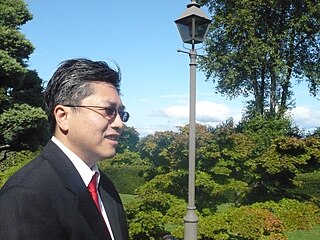
Patrick Peter Chan is a Canadian computer scientist based in Silicon Valley, California. Born in Vancouver, British Columbia, he attended the University of British Columbia, and the University of Waterloo. He holds a master's in Computer Science and has made some contributions to the field.

Danny Cohen was an Israeli American computer scientist specializing in computer networking. He was involved in the ARPAnet project and helped develop various fundamental applications for the Internet. He was one of the key figures behind the separation of TCP and IP ; this allowed the later creation of UDP.
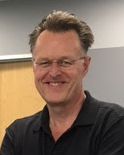
Arthur van Hoff is a Dutch computer scientist and businessman.
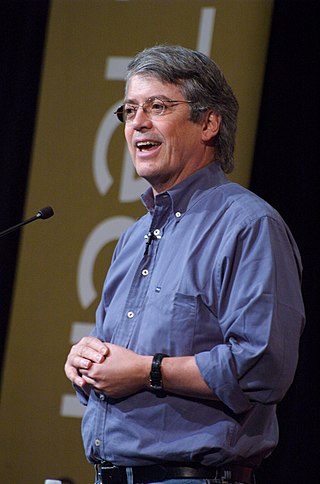
Lewis Wiley Tucker is an American computer scientist, open source advocate, and industry executive spanning several decades of technology innovation. As an early proponent of internet technologies, he held executive-level positions at Sun Microsystems, Salesforce.com, and Cisco Systems contributing to the advancement of the Java programming language and platform, the AppExchange on-demand application marketplace, and the OpenStack cloud computing platform.
References
- ↑ "Jim Waldo". Berkman Klein Center. Retrieved 3 March 2018.
- ↑ "Artima Weblogs". www.artima.com. Retrieved 3 March 2018.
- ↑ Drexler, Michael; Guth, Rob (20 August 1999). "Sun radiant over Jini magic in mobile networks". JavaWorld.
- 1 2 "Jim Waldo". www.eecs.harvard.edu. Retrieved 3 March 2018.
- ↑ "SEAS Professor of the Practice Jim Waldo named University CTO". Harvard Gazette. 7 June 2011. Retrieved 3 March 2018.